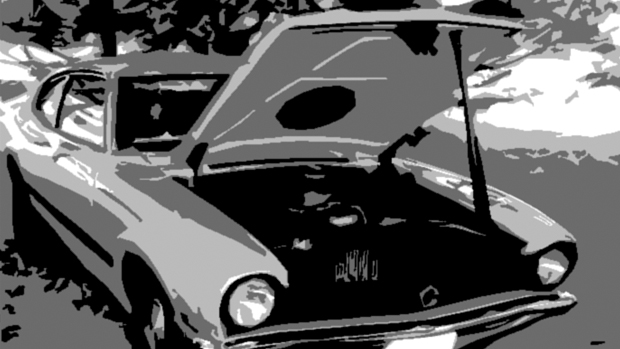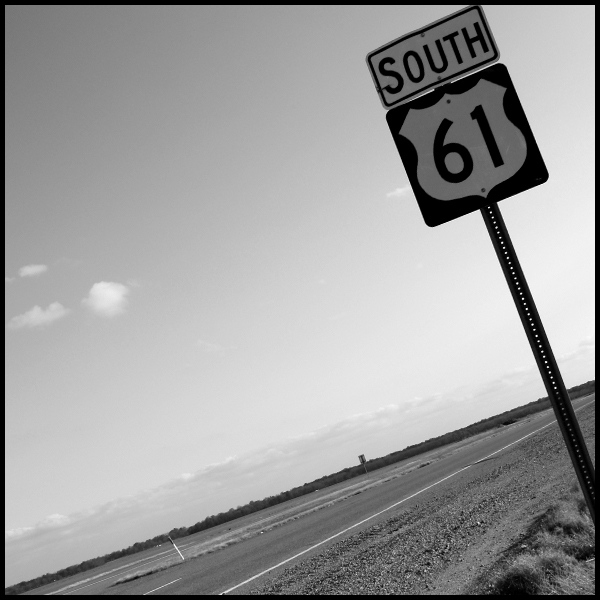
GEDSC DIGITAL CAMERA
“I got womens in Vicksburg, clean on into Tennessee,
but my Friar’s Point rider now, she hops all over me…”
— Poor Bob (if you please …)
Of course the Maverick broke down, three times.
Once on this side of Vicksburg (fan belt—SNAP!), once on the other (front left tire—BANG!).
And finally, a Detroit death rattle near Yazoo City, about 200 miles south of Graceland where tens of thousands of mourners had gathered outside the Music Gates, many thousands more still to arrive, the funeral a day away.
Why does a bluesman wear a hat?
The wiper knew somebody in Brickyard Hill, someone he said he hadn’t seen in “I don’t know how long” and needed, he said as Cherry shook his head in dismay, to “pop in and say hello.”
“Now you tell me?” said Cherry as the Maverick stopped in front of a low-slung house made of cinderblock.
Right now, thought the wiper before “popping in” long enough eat a meal, brush his teeth, fix a broken toy, toss his boxer shorts in a plastic laundry basket and do a dozen other things that caught his eye while Cherry waited—a half-hour fiddling with the car radio in the front seat (keys in the ignition, half tempted to drive away), another half-hour with his concertina on a swing-set in the backyard, moans coming through busted screen windows in the cinderblock house in rhythms so perfectly fluid and erratic that he made up a song to accompany it on the spot.
“What you doing mister?” said a boy from the house who’d never seen a grown-up swing on a swing before.
“I got the Elvis Presley blues, kid,” said Cherry, looking past the 5-year-old as the wiper finally appeared.
“Him alive,” said the boy.
“Who?” asked Cherry, walking past the kid, itching to get the broken-down circus back on the road.
“El-biss,” said the youngster. “Him alive.”
“Sorry about that, Chief,” laughed the wiper as they pulled away and then—not having gone more than 20 miles, approaching the even-smaller town of Louise—the Maverick gave up its pale green ghost.
Cherry leaned against the steaming Ford, rusty hood propped up with a baseball bat, while the wiper went to find a payphone to call a tow truck or a relative or maybe the woman taking a shower that just wouldn’t get hot enough back in Yazoo, none of whom Cherry cared for any more than he did the wiper, for whom he care nothing.
“Screw this,” he said, throwing his satchel over his shoulder. He stepped out onto the narrow highway and put out this thumb, catching the wiper’s defeated gaze as the black man crossed the roadway, Cherry not giving so much as a nod as he ducked into the pick-up truck that had pulled over for him.
“Where to, ranchero?” said the driver.
“Memphis,” said Cherry.
“Damn shame,” said the driver. “Least he got to die at home.”
Judy Apicella had died at home back in Baltimore, murdered in the kitchen as she drank a glass of milk on an afternoon her husband decided to leave work early to see if he could catch her.
[Cherry was working in the galley of a ship when it went down.]
More mad that he hadn’t caught her, Armand Apicella shot Judy anyway.
And though Cherry truly believed he didn’t give a crap about anything in this world but music and poon and the black and gold Monte Carlo that Ma claimed had belonged to his father, he winced to think that Willie might be going down the same road as he had.
“Yeah,” said Cherry, about 180 miles to go, eyes peeled for the car, his little brother, and some woman with peroxide-blonde hair (“fat,” said Ma on the phone, “a pig”) as the driver cut over to pick up Highway 61.
“Muddy Waters,” said Cherry when he saw the sign for Rolling Fork.
“Slick Watts,” said the driver.
Trying to remember the song that he’d conjured on the swing set—a blues that seemed to have sprung from the curly head of Zeus—Cherry took out his concertina and began playing quietly.
“What else you know on that thing?” said the driver, a tattoo of the Confederate flag on the top of his left hand, gold fringe around the edges flowing toward his wedding ring.
“Anything,” said Cherry. “Everything. Whatever you want.”
“How ‘bout you one for the King?”
And Cherry obliged, but not before asking the man if he could speed up a little bit, that he was in a hurry. ![]()
–
For Part 1 of “Cherry in Magnolia,” click HERE.
–
This article was printed in The Local Voice #230 (published May 28, 2015).
To download the PDF of this issue, click here.



